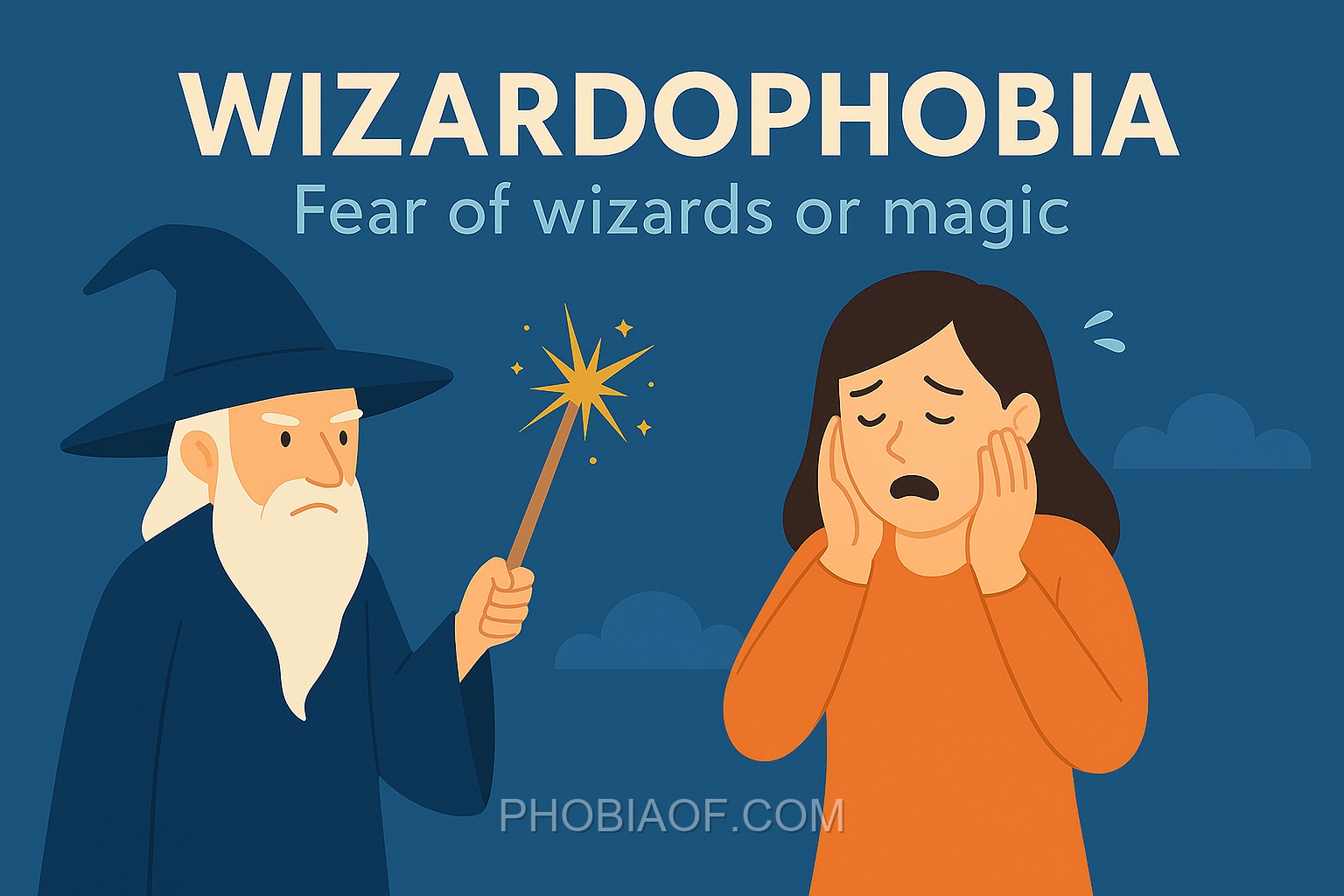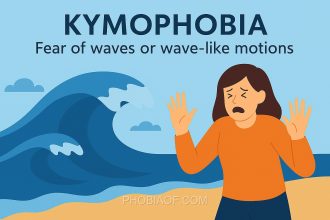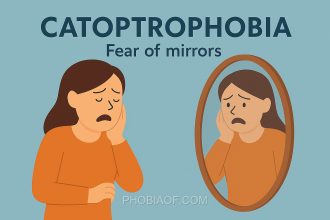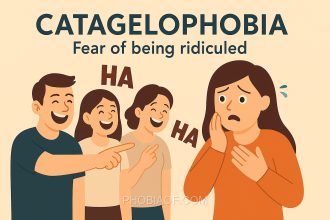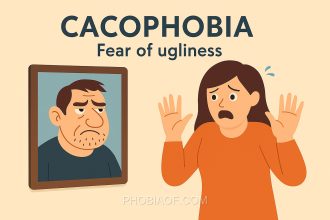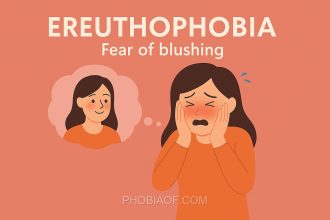Have you ever felt a chill run down your spine at the mere mention of spells and enchantments? If so, you might be experiencing Wizardophobia, a term used to describe the fear of wizards or magic.
In everyday language, Wizardophobia is the intense fear or aversion to anything related to wizards, magic, or the supernatural. This fear can manifest in different ways, from anxiety when watching fantasy films to avoiding places or events associated with magical themes.
The term Wizardophobia combines the word “wizard” with the Greek root “phobos,” meaning fear. This phobia can affect individuals by causing anxiety, stress, and even panic attacks in situations where magic is involved. People with Wizardophobia might find it challenging to engage in cultural or social activities that involve magical themes, which can impact their social interactions and enjoyment of popular media.
Understanding and acknowledging such fears is the first step towards managing them. With a compassionate approach, those experiencing Wizardophobia can find ways to cope and perhaps even enjoy the magical wonder that so many find enchanting.
Causes of Wizardophobia
Wizardophobia, the fear of wizards and wizardry, might seem unusual to some, but like many phobias, it can stem from a variety of causes. Understanding these causes can help in addressing and overcoming this fear. Below are some common reasons why someone might develop wizardophobia.
- Genetic Predisposition:
Some research suggests that phobias can run in families. If someone has a close relative with an anxiety disorder or specific phobia, they might be genetically predisposed to developing similar fears, including wizardophobia.
- Traumatic Experiences:
Experiencing or witnessing a traumatic event involving a wizard or magic could trigger this phobia. For instance, a frightening encounter at a themed event or an intense scene from a movie could leave a lasting impression.
- Learned Behavior:
Children, in particular, can develop phobias by observing the reactions of others. If a parent or influential figure in their life has a fear of wizards, the child might imitate this behavior, developing a similar fear.
- Psychological Factors:
Underlying anxiety disorders or other mental health issues can contribute to the development of phobias. Wizardophobia might be part of a broader pattern of anxiety that manifests in specific fears.
- Environmental Factors:
Exposure to negative portrayals of wizards in media or cultural narratives that depict magic as dangerous or evil can influence one’s perception and lead to fear.
Interestingly, some theories suggest that wizardophobia could be linked to a fear of the unknown or a discomfort with the concept of power that cannot be explained through logic or science. While research on this specific phobia is limited, these insights can provide a starting point for better understanding and addressing the fear of wizards.
Symptoms of Wizardophobia
Wizardophobia, the intense fear or anxiety of wizards and magical elements, can manifest in a variety of ways, both physically and emotionally. Recognizing these symptoms can be the first step in seeking support and understanding. Here are some common symptoms associated with this phobia:
Physical Symptoms:
- Panic attacks characterized by an intense, overwhelming sense of fear or dread.
- Rapid heartbeat that may feel like palpitations or fluttering in the chest.
- Excessive sweating, especially in situations where encountering a wizard or magical theme is possible.
- Shaking or trembling, sometimes visibly, when faced with triggers.
- Shortness of breath or a feeling of being unable to breathe properly.
- Nausea or stomach discomfort when thinking about or encountering magical themes.
Emotional and Behavioral Symptoms:
- Overwhelming dread or terror at the thought of wizards or magic.
- Avoidance of places, events, or media that may involve wizards or magical elements.
- Inability to focus on anything else when confronted with fears related to wizards.
- Feeling a loss of control or helplessness when facing phobia-related triggers.
- Persistent anxiety about encountering situations involving wizards, even when none are present.
When severe, these symptoms can significantly interfere with daily life, affecting one’s ability to engage in social activities, work, or hobbies, and may require professional support to manage effectively.
Treatment for Fear of Wizards or Magic
Wizardophobia, or the fear of wizards and magic, is a phobia that can be effectively treated and managed over time. If you or someone you know is struggling with this fear, rest assured that there are proven methods to help you overcome it. Seeking help is the first step towards reclaiming control over your life.
Therapeutic Approaches
- Exposure Therapy: This involves gradually exposing yourself to the source of your fear in a controlled and supportive environment. Over time, you can learn to face your fear of wizards and magic without anxiety. A therapist will guide you through this process, helping you build confidence step by step.
- Cognitive-Behavioral Therapy (CBT): CBT is a structured therapy that helps change the negative thought patterns associated with your phobia. Through CBT, you can learn to reframe your fearful thoughts about wizards and magic, reducing the anxiety they cause.
- Counseling: Talking to a counselor about your fear can provide emotional support and insight. Counseling can help you understand the root of your fear and develop strategies to cope with it effectively.
Self-Help Coping Techniques
- Relaxation Exercises: Techniques such as deep breathing, progressive muscle relaxation, and visualization can help calm your mind and reduce anxiety when confronted with your fear.
- Meditation: Regular meditation practice can enhance your overall sense of calm and well-being, making it easier to manage anxiety related to your phobia.
- Support Groups: Joining a support group can connect you with others who understand what you’re going through. Sharing experiences and coping strategies can be incredibly beneficial.
Medication
In severe cases of wizardophobia, medication such as anti-anxiety drugs may be prescribed. However, the focus should remain on therapy and developing coping skills, as these provide long-term benefits.
Remember, seeking professional help is a courageous step. If your fear of wizards or magic is interfering with your daily life, a mental health professional can guide you through the treatment process and support your journey to overcoming this phobia. With time and effort, you can manage and even conquer this fear, leading to a more fulfilling life.
Conclusion
Understanding Wizardophobia, the fear of wizards or magic, begins with recognizing its causes and symptoms. By identifying these aspects, individuals can take the first steps toward addressing and overcoming their phobia. Knowledge empowers; when you understand the roots of your fear, you can begin to unravel its hold on you.
For those grappling with Wizardophobia, remember that you are not alone, and many people have successfully managed or even conquered their phobias with time, patience, and the right support. It’s important to acknowledge that seeking help is a sign of strength. There are effective strategies and therapies available that can guide you through this journey.
If you find that your fear is impacting your daily life, consider reaching out to a therapist or doctor for support. Professional guidance can provide a safe space to explore your feelings and develop coping mechanisms tailored to your needs. You deserve to live without the shadow of fear, and with the right help, it is possible to move toward a more empowered and free existence.
Stay hopeful and informed, knowing that with each step you take, you are moving closer to a life where Wizardophobia no longer holds power over you.
